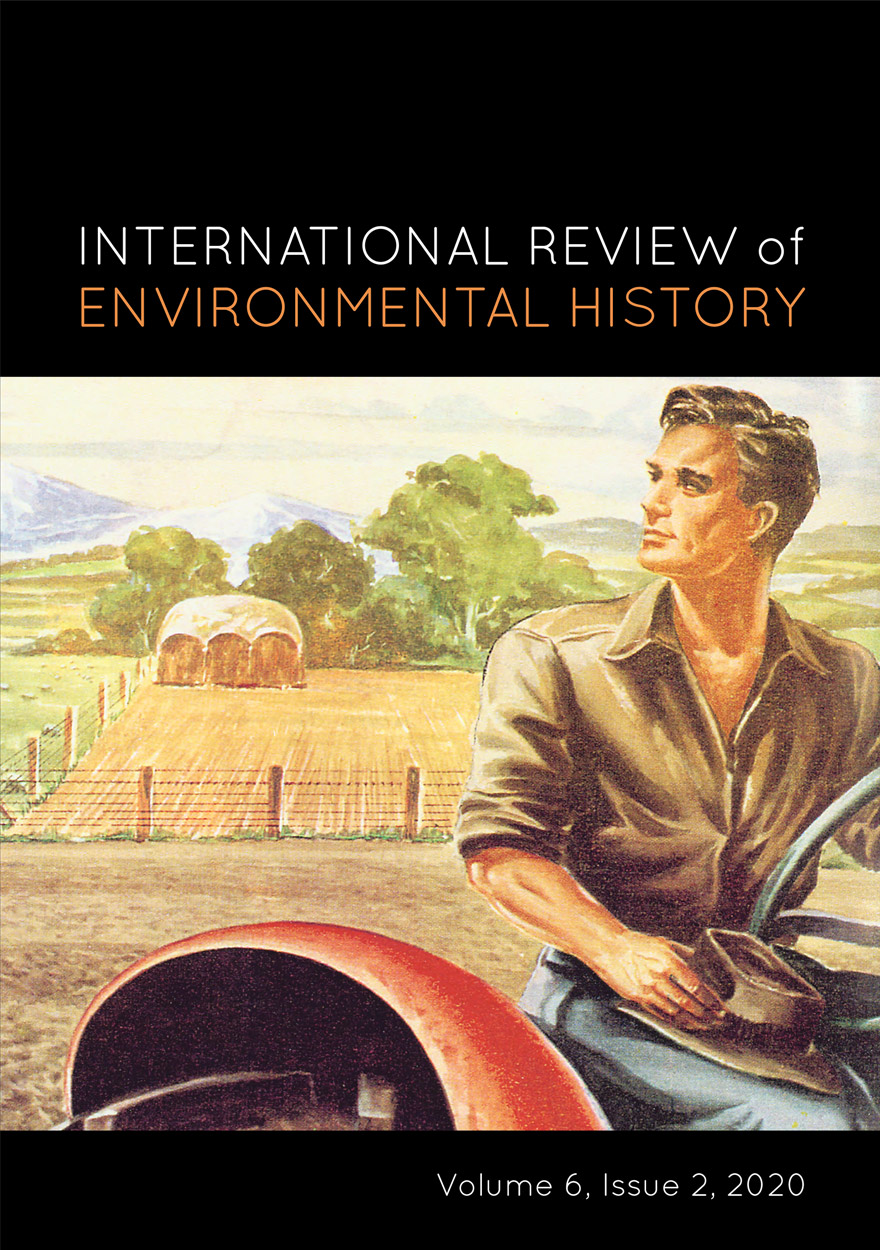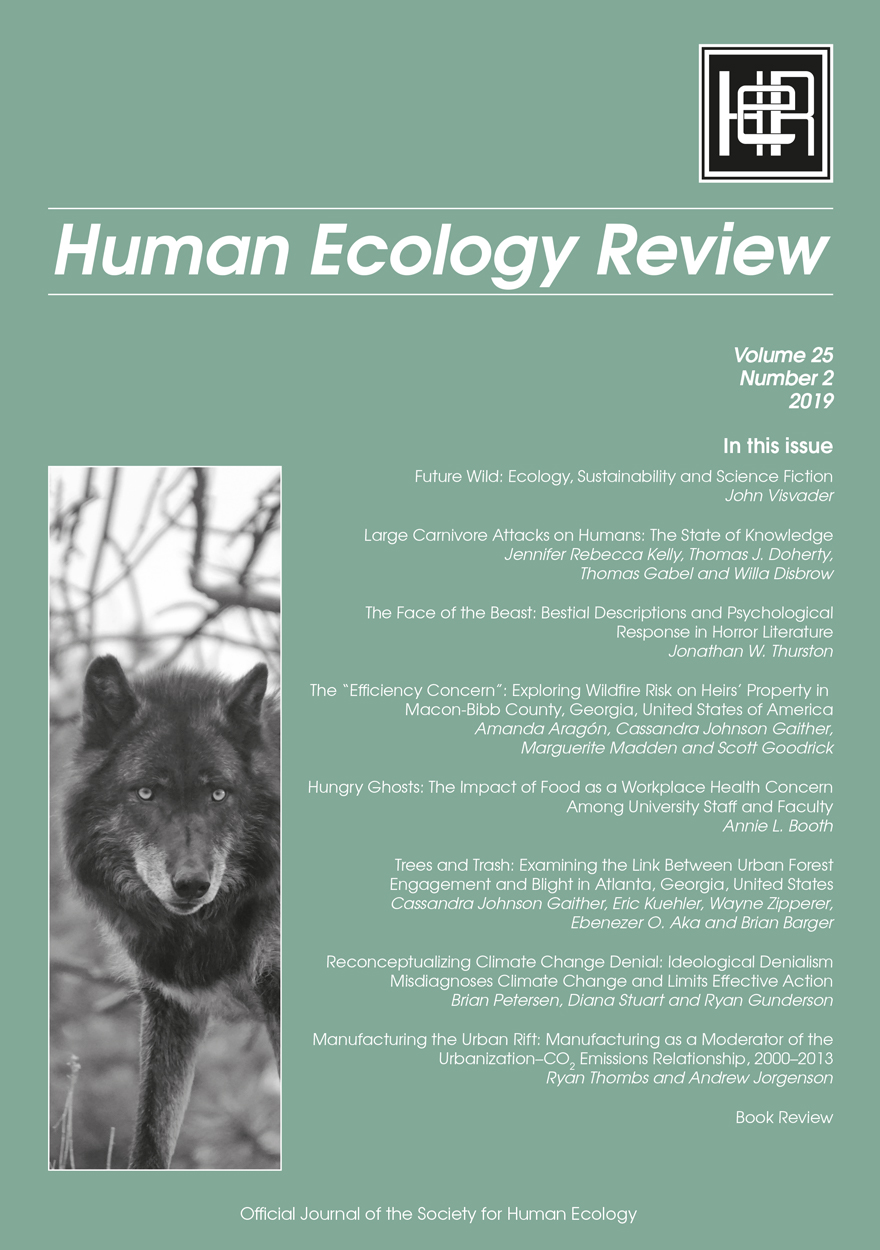Search titles
Displaying results 21 to 30 of 152.

Cooperative Evolution »
Reclaiming Darwin’s Vision
Authored by: Christopher Bryant, Valerie A. Brown
Publication date: March 2021
Cooperative Evolution offers a fresh account of evolution consistent with Charles Darwin’s own account of a cooperative, inter-connected, buzzing and ever-changing world. Told in accessible language, treating evolutionary change as a cooperative enterprise brings some surprising shifts from the traditional emphasis on the dominance of competition.
The book covers many evolutionary changes reconsidered as cooperation. These include the cooperative origins of life, evolution as a spiral rather than a ladder or tree, humans as a part of natural systems rather than the purpose, relationships between natural and social change, and the role of the individual in adaptive radiation onto new ground. The story concludes with a projection of human evolution from the past into the future.
‘Environmental studies courses have needed a book like Cooperative Evolution for a long time. It is a boon for those teaching the complexity of the evolutionary story.’
— Dr John A. Harris, BSc(Hons) MSc PhD, School of Environmental Science, University of Canberra
‘As a regenerative, holistic-thinking farmer I daily witness the results of cooperative evolution as the seasons unfold. A pleasure to read, Cooperative Evolution gives entry to recent thinking on evolutionary processes.’
— David Marsh, MSA, ‘Allendale’, Boorowa, New South Wales, 2018 National Individual Landcarer Award recipient
‘This book is an engaging new look at ideas about evolution as we know it today. In the hands of two eminent biologists, it presents an approachable yet challenging argument. I heartily recommend it.’
— Emeritus Professor Sue Stocklmayer AO, BSc MSc PhD, Centre for the Public Awareness of Science, The Australian National University

International Review of Environmental History: Volume 6, Issue 2, 2020 »
Edited by: James Beattie
Publication date: November 2020
International Review of Environmental History takes an interdisciplinary and global approach to environmental history. It encourages scholars to think big and to tackle the challenges of writing environmental histories across different methodologies, nations, and time-scales. The journal embraces interdisciplinary, comparative and transnational methods, while still recognising the importance of locality in understanding these global processes.
The journal's goal is to be read across disciplines, not just within history. It publishes on all thematic and geographic topics of environmental history, but especially encourage articles with perspectives focused on or developed from the southern hemisphere and the ‘global south’.
Download for free
Not available for purchase

Gouvernance et gestion des aires protégées »
Publication date: September 2020
Le livre “Gouvernance et gestion des aires protégées” est une compilation de textes originaux, d'études de cas et d'exemples du monde entier. Il s’appuie sur une vaste littérature et sur les connaissances et l'expérience de nombreux acteurs des aires protégées. Ces derniers y présentent les connaissances actuelles et les idées innovantes des diverses branches de la gouvernance et de la gestion des aires protégées. Ce livre constitue un investissement dans les compétences et les connaissances des hommes et, par conséquent, dans la gouvernance et la gestion des aires protégées dont ces hommes sont responsables.
Le succès mondial du concept d'aire protégée réside dans la dualité de sa vision : protéger, sur le long terme, à la fois le patrimoine naturel et le patrimoine. Les organisations telles que l'Union internationale pour la conservation de la nature sont une force unificatrice à cet égard. Cependant, les aires protégées restent un phénomène sociopolitique et la façon dont elles sont comprises, gérées et gouvernée par les États peut toujours être le sujet de débats et de contestations. Ainsi, ce livre cherche à éclairer, éduquer et surtout à inciter les lecteurs à réfléchir à l’avenir, au passé et au présent des aires protégées.
Cent soixante neuf auteurs ont participé à la rédaction de ce livre qui porte sur tous les aspects de la gouvernance et de la gestion des aires protégées. Ils ont ainsi créé un outil de formation et de renforcement des capacités pour les agents de terrain et les gestionnaires des aires protégées ainsi que les décideurs de plus haut niveau.
La traduction de l'ouvrage est en cours et les chapitres traduits seront publiés progressivement, nous vous invitons donc à consulter le site régulièrement.

Communicating Science »
A Global Perspective
Edited by: Toss Gascoigne, Bernard Schiele, Joan Leach, Michelle Riedlinger, Bruce V. Lewenstein, Luisa Massarani, Peter Broks
Publication date: September 2020
Modern science communication has emerged in the twentieth century as a field of study, a body of practice and a profession—and it is a practice with deep historical roots. We have seen the birth of interactive science centres, the first university actions in teaching and conducting research, and a sharp growth in employment of science communicators.
This collection charts the emergence of modern science communication across the world. This is the first volume to map investment around the globe in science centres, university courses and research, publications and conferences as well as tell the national stories of science communication.
How did it all begin? How has development varied from one country to another? What motivated governments, institutions and people to see science communication as an answer to questions of the social place of science?
Communicating Science describes the pathways followed by 39 different countries. All continents and many cultures are represented. For some countries, this is the first time that their science communication story has been told.

International Review of Environmental History: Volume 6, Issue 1, 2020 »
Edited by: James Beattie
Publication date: May 2020
International Review of Environmental History takes an interdisciplinary and global approach to environmental history. It encourages scholars to think big and to tackle the challenges of writing environmental histories across different methodologies, nations, and time-scales. The journal embraces interdisciplinary, comparative and transnational methods, while still recognising the importance of locality in understanding these global processes.
The journal's goal is to be read across disciplines, not just within history. It publishes on all thematic and geographic topics of environmental history, but especially encourage articles with perspectives focused on or developed from the southern hemisphere and the ‘global south’.
Download for free
Not available for purchase

Roars from the Mountain »
Colonial Management of the 1951 Volcanic Disaster at Mount Lamington
Authored by: R. Wally Johnson
Publication date: April 2020
Mount Lamington broke out in violent eruption on 21 January 1951, killing thousands of Orokaiva people, devastating villages and destroying infrastructure. Generations of Orokaiva people had lived on the rich volcanic soils of Mount Lamington, apparently unaware of the deadly volcanic threat that lay dormant beneath them. Also unaware were the Europeans who administered the Territory of Papua and New Guinea at the time of the eruption, and who were uncertain about how to interpret the increasing volcanic unrest on the mountain in the preceding days of the disaster.
Roars from the Mountain seeks to address why so many people died at Mount Lamington by examining the large amount of published and unpublished records that are available on the 1951 disaster. The information sources also include the results of interviews with survivors and with people who were part of the relief, recovery and remembrance phases of what can still be regarded as one of Australia’s greatest natural-hazard disasters.

Learning from Fukushima (Japanese version) »
Nuclear power in East Asia
Edited by: Peter Van Ness, Mel Gurtov
Publication date: March 2020
東アジアの原子力に未来はあるかーー福島の原発事故を受け開催された、原子力エネルギーをめぐる二つの重要な国際会議の成果。ノーベル平和賞ICAN創設者をはじめとする核問題の専門家が内外から参加。各国の原子力政策、原発推進の真のコスト、ポスト原子力の未来等、東アジアにおける原子力の現状と課題を浮き彫りにする。オーストラリア国立大学出版局との共同出版。

Human Ecology Review: Volume 25, Number 2 »
Publication date: December 2019
Human Ecology Review is a semi-annual journal that publishes peer-reviewed interdisciplinary research on all aspects of human–environment interactions (Research in Human Ecology). The journal also publishes essays, discussion papers, dialogue, and commentary on special topics relevant to human ecology (Human Ecology Forum), book reviews (Contemporary Human Ecology), and letters, announcements, and other items of interest (Human Ecology Bulletin). Human Ecology Review also publishes an occasional paper series in the Philosophy of Human Ecology and Social–Environmental Sustainability.
Download for free
Not available for purchase

International Review of Environmental History: Volume 5, Issue 2, 2019 »
Edited by: James Beattie
Publication date: November 2019
International Review of Environmental History takes an interdisciplinary and global approach to environmental history. It encourages scholars to think big and to tackle the challenges of writing environmental histories across different methodologies, nations, and time-scales. The journal embraces interdisciplinary, comparative and transnational methods, while still recognising the importance of locality in understanding these global processes.
The journal's goal is to be read across disciplines, not just within history. It publishes on all thematic and geographic topics of environmental history, but especially encourage articles with perspectives focused on or developed from the southern hemisphere and the ‘global south’.
Download for free
Not available for purchase

Following the Water »
Environmental History and the Hydrological Cycle in Colonial Gippsland, Australia, 1838–1900
Authored by: Kylie Carman-Brown
Publication date: October 2019
Water reflects culture.
This book is a detailed analysis of hydrological change in Australia’s largest inland waterway in Australia, the Gippsland Lakes in Victoria, in the first 70 years of white settlement.
Following air, water is our primal need. Unlike many histories, this book looks at the entire hydrological cycle in one place, rather than focusing on one bit. Deftly weaving threads from history, hydrology and psychology into one, Following the Water explores not just what settlers did to the waterscape, but probes their motivation for doing so.
By combining unlikely elements together such as swamp drainage, water proofing techniques and temperance lobbying, the book reveals a web of perceptions about how water ‘should be’. With this laid clear, we can ask how different we are from our colonial forebears.



